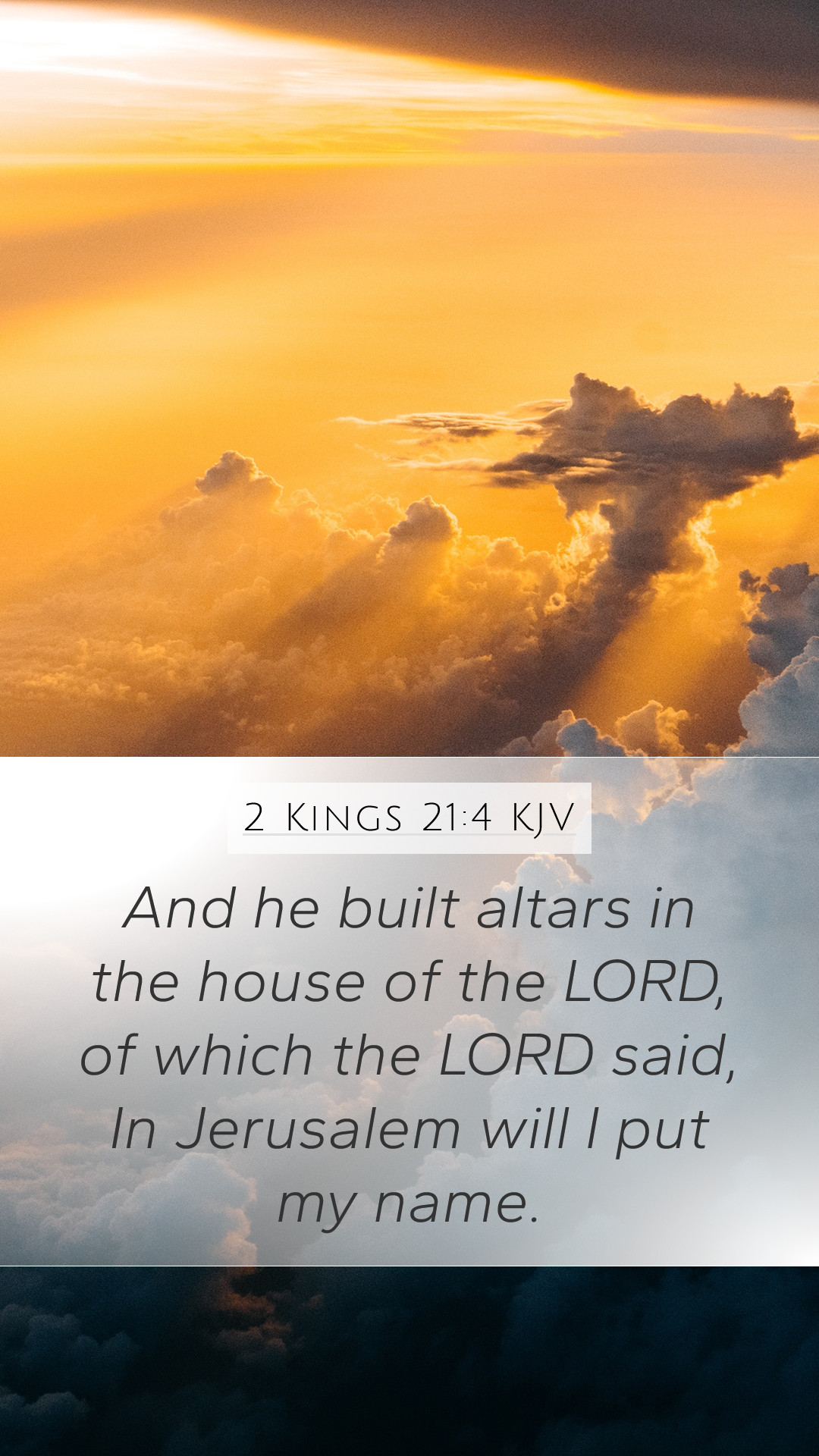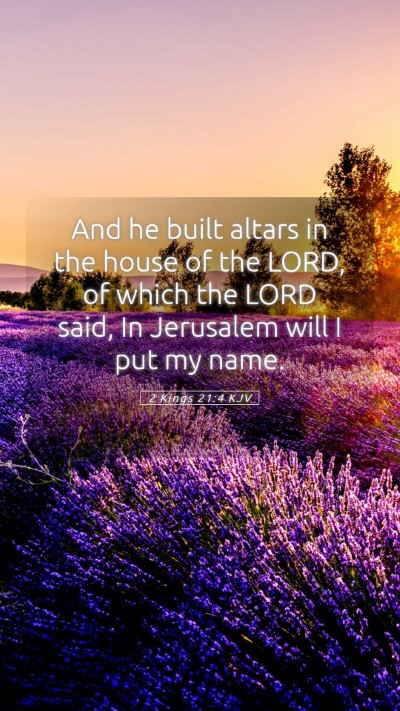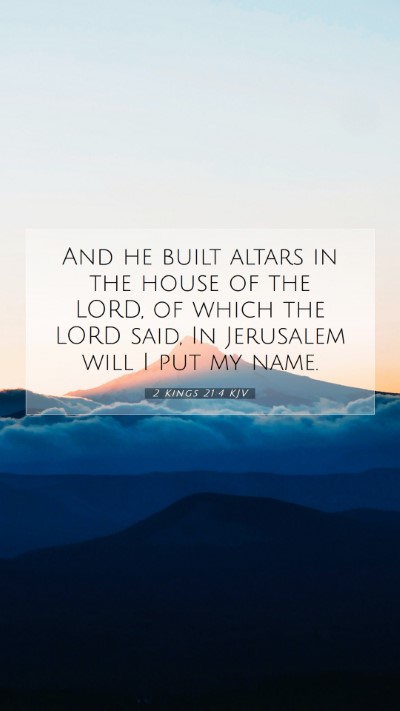Bible Verse Commentary on 2 Kings 21:4
Verse: "And he built altars in the house of the Lord, of which the Lord said, 'In Jerusalem will I put my name.'"
Introduction
In this verse, we observe King Manasseh's actions in the context of biblical history. This commentary aims to provide insight into this specific scriptural passage through a synthesis of renowned public domain commentaries.
Historical Context
The reign of Manasseh is marked by significant religious reforms and idolatrous practices. He is often seen as a symbol of the apostasy in Judah. Understanding this timeline helps contextualize his actions within the broader narrative of the kingdom of Israel and Judah.
Understanding Scripture
2 Kings 21:4 highlights the contrast between God’s command and Manasseh's actions by demonstrating the rebellious nature of human leadership against divine commandments. As detailed in the commentaries, the building of altars is a direct violation of God's instructions regarding worship.
Insights from Commentaries
-
Matthew Henry:
Henry notes that Manasseh’s choice to build altars in the temple shows a blatant disregard for God’s holiness. This act signifies a pivotal moment wherein worship is corrupted by idolatry, reflecting a broader societal decline.
-
Albert Barnes:
Barnes emphasizes that Manasseh, despite knowing the Lord’s command to worship exclusively in Jerusalem, chose to honor other deities instead. This contradiction illustrates how power can lead to moral decay, challenging the leaders to heed divine authority.
-
Adam Clarke:
Clarke captures the theological implications of this verse, proposing that Manasseh's actions are not only a betrayal of national identity but also represent a significant theological crisis. By building altars in the very house of the Lord, he jeopardized the covenant relationship between God and His people.
Theological Themes
The act of building altars within the temple encapsulates key theological themes, such as:
- Apostasy: The deliberate turning away from God’s commands.
- Idolatry: Worshipping foreign gods undermines true worship.
- God’s Judgment: This act set the stage for future consequences faced by Judah.
Application of Scripture
This verse serves as a stark warning about the dangers of mixing true worship with false practices. For modern believers, it invites a deep reflection on the purity of one's worship and the potential influences of culture and society on personal faith.
Questions for Bible Study Groups
- What lessons can we draw from Manasseh's disregard for God's commandments?
- How can we ensure that our worship remains centered on God and not influenced by contemporary culture?
- In what ways can we share and apply the insights from this verse within our community?
Cross References
- 2 Chronicles 33:1-9: A parallel account of Manasseh's reign and sins.
- Jeremiah 7:30-31: God's condemnation of idol worship in Judah.
- Deuteronomy 12:5-7: God's command about centralizing worship in Jerusalem.
Conclusion
This analysis of 2 Kings 21:4 provides deep insights into the complexity of human nature as it relates to divine expectations. By understanding the context and implications of this passage, individuals and Bible study groups can better appreciate the depth of Scripture and its relevance to modern life.
Additional Resources
For further study, consider utilizing online Bible study resources alongside books focusing on biblical exegesis and historical context. Engage with Bible study groups to facilitate dynamic discussions surrounding scripture interpretations, especially touching on challenging passages such as this.
Final Thoughts
As we explore the meaning of Bible verses like 2 Kings 21:4, we deepen our understanding of Scripture and enrich our spiritual lives. May this commentary inspire thoughtful engagement with God’s Word as we seek to apply its lessons daily.


